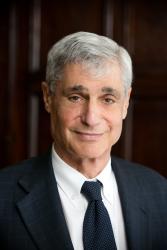

LIVE
The insiders’ game: How elites make war and peace9:00 am EDT - 12:30 pm EDT
Past Event
9:00 am - 12:30 pm EDT
400 New Jersey Avenue, NW
Washington, DC
On October 30, The Hamilton Project at Brookings hosted a two-part forum on mitigating climate change through market mechanisms and new technologies. In addition to the release of a new Hamilton Project strategy paper, the forum highlighted two new discussion papers on how to best design market mechanisms to reduce greenhouse gas emissions and will include proposals to expand —and possibly restructure—the federal research and development program to better promote the development of new greenhouse gas reducing technologies.
Former U.S. Treasury Secretary Robert E. Rubin and Hamilton Project Director Jason Furman, also a Brookings senior fellow, opened the event with a special award presentation, followed with opening remarks by former U.S. Treasury Secretary Lawrence H. Summers on economic approaches to energy security and climate change—the subject of the new strategy paper.
The new Hamilton Project strategy paper argues that the best way to address climate change is to give the private sector the right incentives to undertake emissions reductions. At the same time, the strategy calls for policies to protect low- and middle-income families from the consequences of higher energy prices.
The two new discussion papers feature alternate views on how to best harness market forces to protect the environment. Gilbert E. Metcalf of Tufts University discussed his proposal for a carbon tax and Robert N. Stavins of Harvard University presented his proposal for a cap-and-trade system. John Deutch of the Massachusetts Institute of Technology and John Podesta of the Center for American Progress discussed their recent proposal for a new federal research and development strategy, and Richard Newell of Duke University and Resources for the Future shared his ideas for creating science and technology policies that would enable new technologies to work effectively.
Policy papers:






Tedros Adhanom-Ghebreyesus
May 9, 2024

Jenny Schuetz, Adie Tomer
May 6, 2024
2024
The Brookings Institution, Washington D.C.
2:00 pm - 3:30 pm EDT